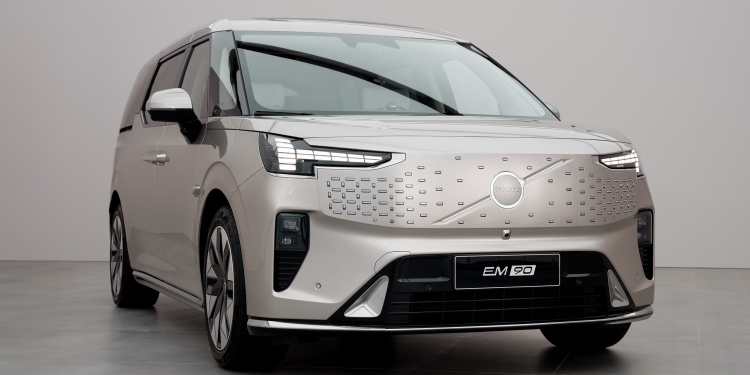The luxury MPV segment spawned by the likes of the Toyota Alphard and Vellfire has started to become more relevant in recent years, as well-heeled buyers crave for ever more interior space—the kind that traditional sedans and SUVs simply can’t provide. The Japanese twins have already sired the even more upmarket Lexus LM, while in China, these people movers are all the rage, with the all-electric Maxus Mifa 9 even making its way here. Now, there’s a new challenger in the shape of the also electric Volvo EM90.
Now, Gothenburg wants you to believe that its latest product is the descendent of a long line of roomy wagons, tracing their way back to the 1953 Duett—but it’s not fooling anybody. The fact is, the EM90 is a rebadged version of the Zeekr 009, built by Volvo’s parent company Geely and made to capitalise on the burgeoning MPV market in China. It’s exactly this reason why the EM90 is being sold in China first.
Modest power, over 700km range
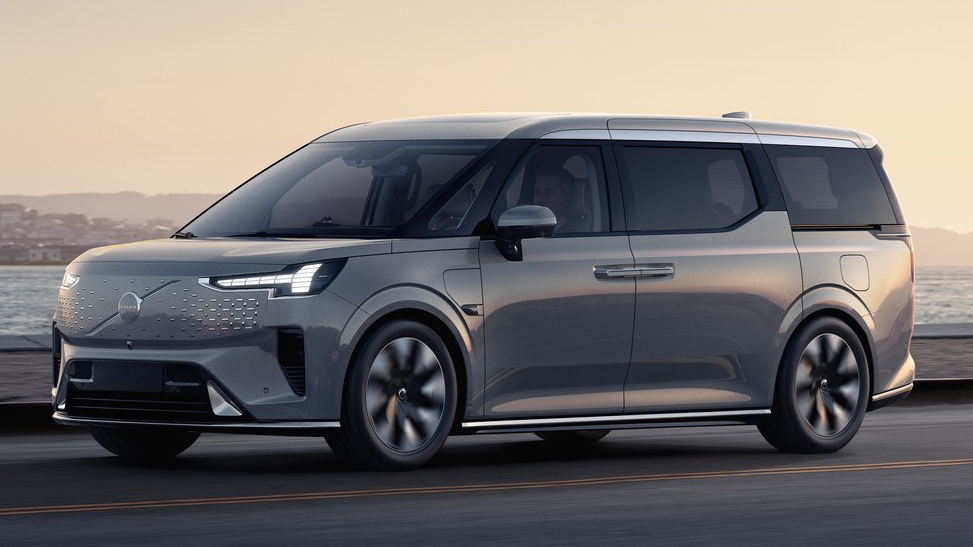
Like the Zeekr, the EM90 is powered by a single rear motor that produces 200kW (268hp) and 343Nm of torque—the same one you’ll find in the Smart #1—enabling it to get from zero to 100km/h in 8.3 seconds. Unfortunately, there’s no dual-motor option here, unlike its Chinese sibling. A 116kWh battery provides an impressive range of 738km, albeit on China’s notoriously lenient CLTC cycle.
Volvo has yet to reveal how much DC fast charging power the EM90 will accept, only that it takes 28 minutes to charge from 10 to 80%; it will also support AC charging up to 11kW. It has at least confirmed the car will feature a vehicle-to-load (V2L) function that allows it to charge other electric cars and power appliances.
A Chinese MPV through a Swedish lens
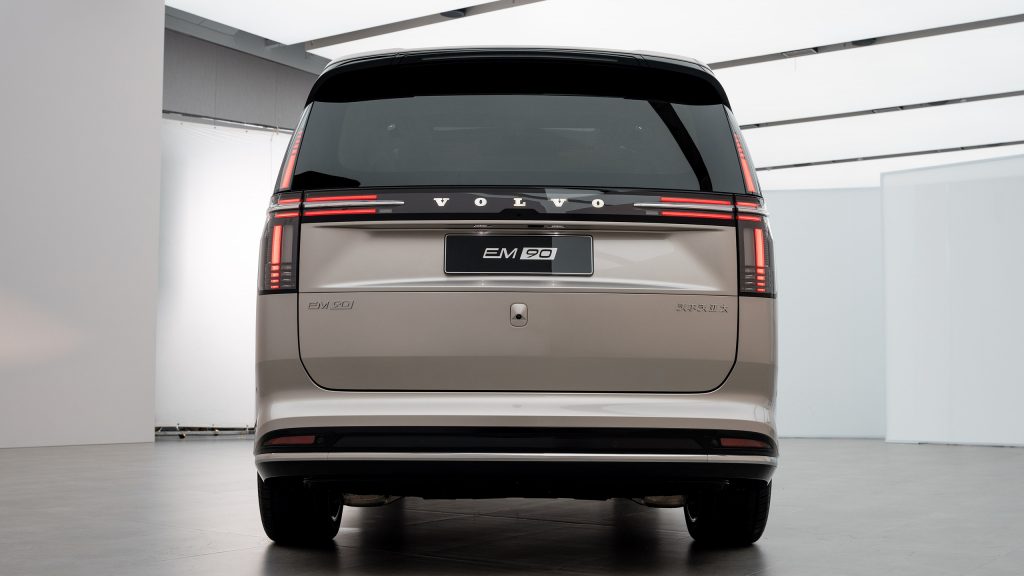
The 009 influence is visible on the outside, the EM90 sharing that car’s upright proportions, slab sides and distinctive C-pillar “fin”. However, Volvo has made great pains to avoid looking like it simply stuck its iron mark on someone else’s work. The bluff front end (inspired by skyscrapers, apparently) features the brand’s signature T-shaped Thor’s Hammer daytime running lights and a body-coloured “grille” that even lights up when the car is unlocked.
The headlight T graphic is mirrored in the full-height taillights, although the lower tailgate and bumper is shared with its Zeekr sibling. Inside, the EM90 gets a unique dashboard design that exhibits Volvo’s trademark clean Scandinavian aesthetic (and features illuminated bamboo trim), but the rest of the cabin is identical to the 009. This includes the tall centre console that houses a pebble-like gear selector (here adorned with Orrefors crystal), a Qi wireless charger and a cavernous storage compartment underneath.
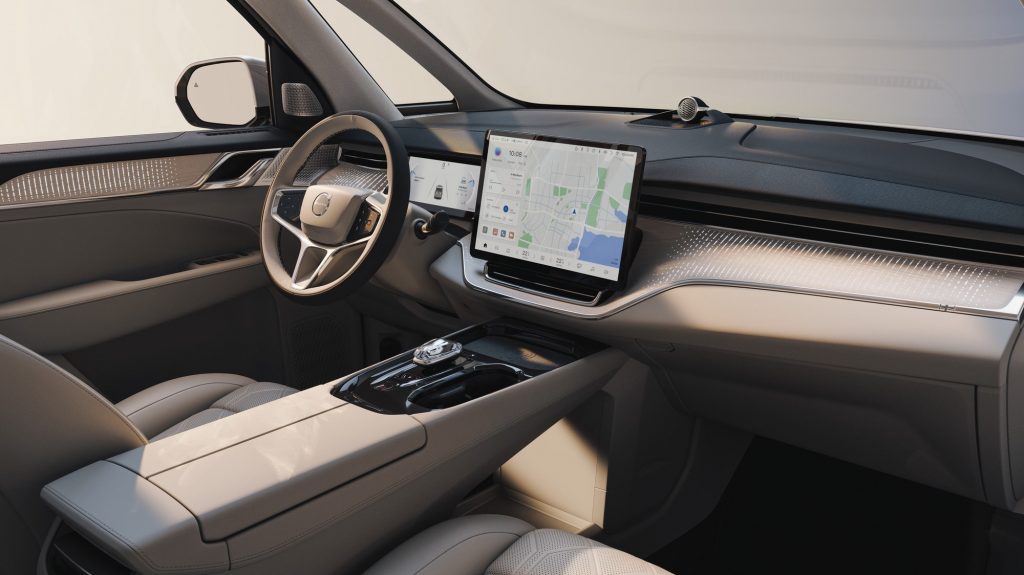
Dominating proceedings is the same pair of screens you’ll find in the Zeekr, including a landscape-oriented (instead of portrait on other Volvos) 15.4-inch centre touchscreen that runs on the Qualcomm Snapdragon 8155 chip. It comes with 5G connectivity and a built-in voice control system, and you can even use it as a monitor via a HDMI port. There’s also a 21-speaker Bowers & Wilkins 3D sound system with a massive 2,460-watt output, active noise cancellation and built-in front headrest speakers.
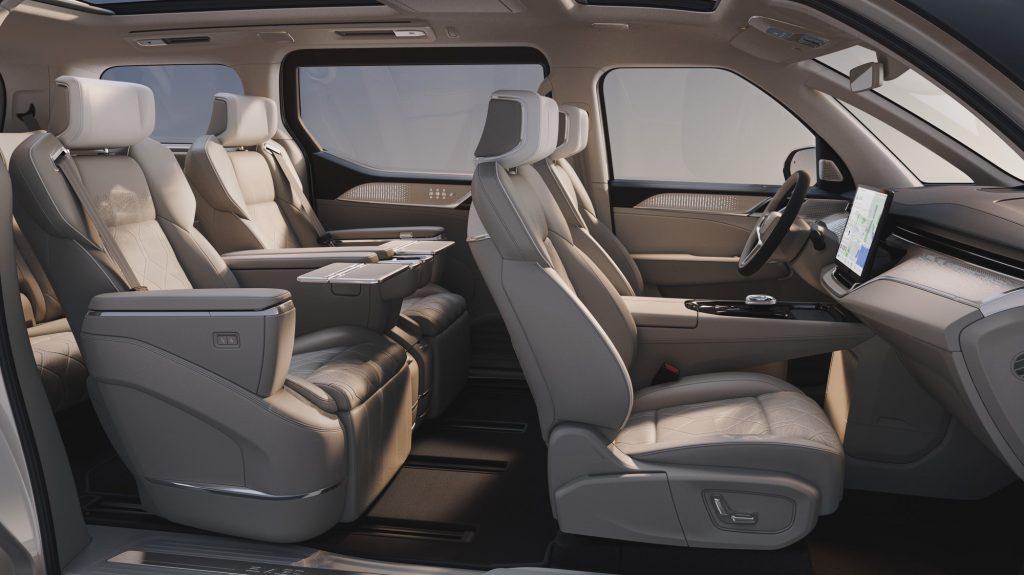
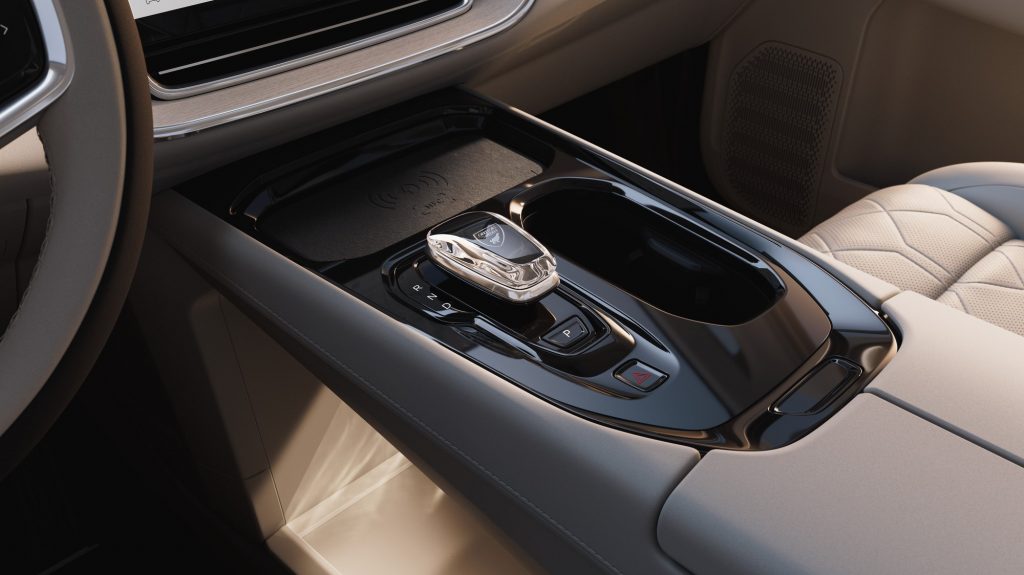
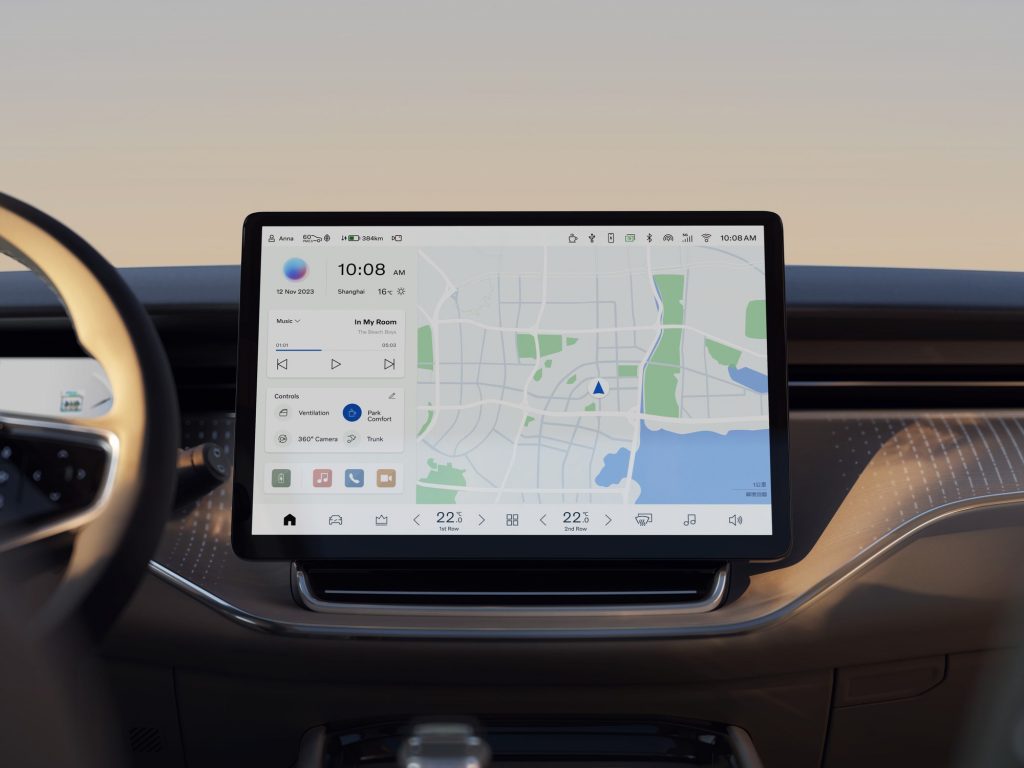
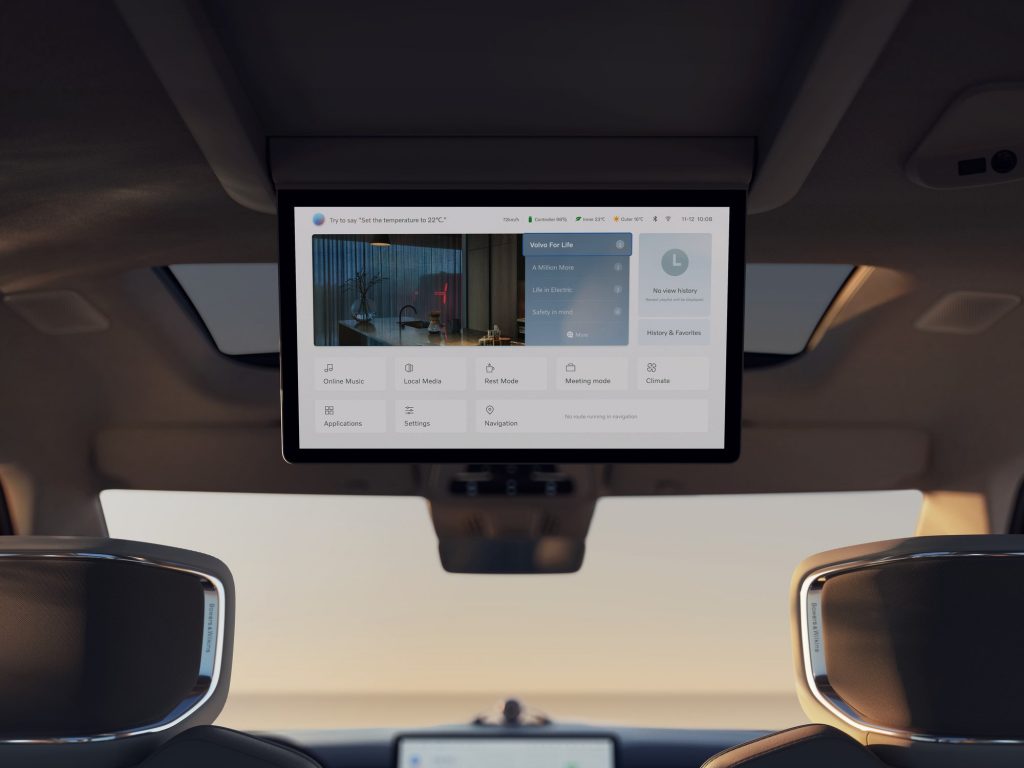
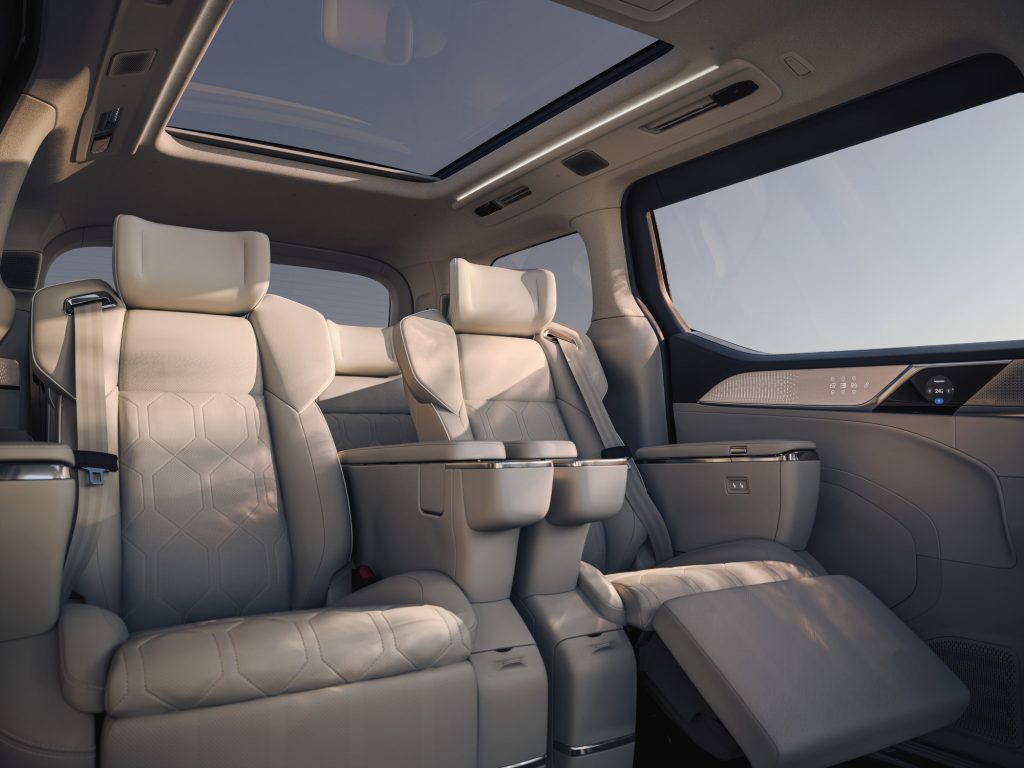
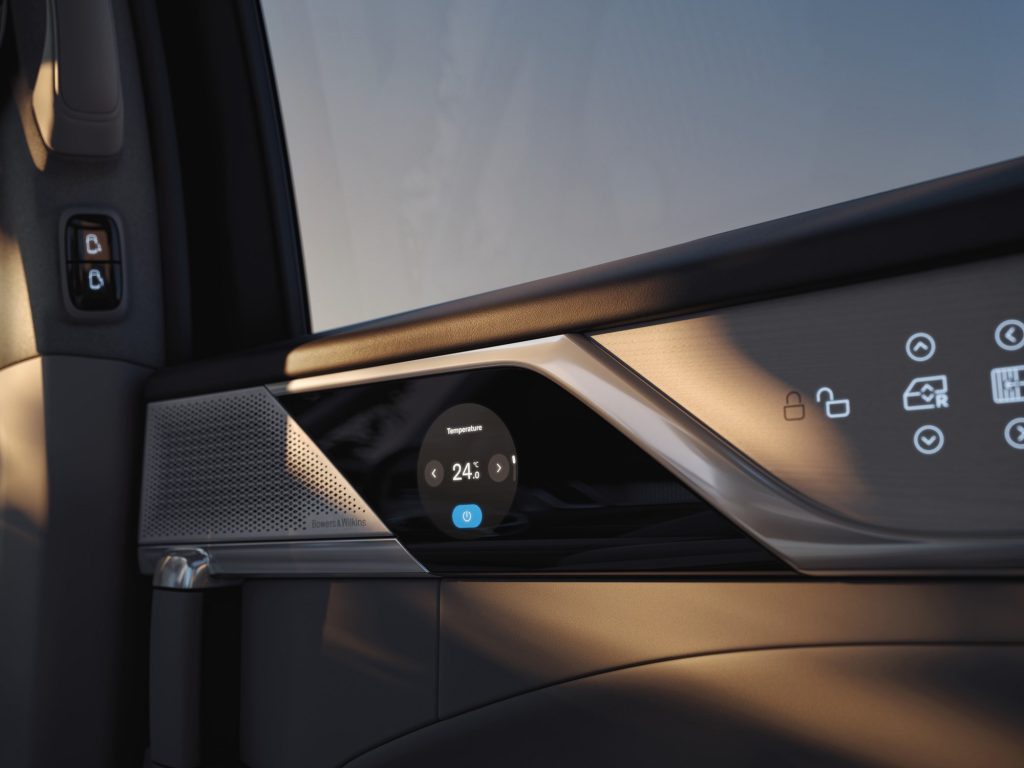
As this is a luxury MPV, the EM90 is only available as a six-seater, the second-row passengers getting to be ensconced in business class-style power-reclining seats with extendable ottomans, fold-out tables and their own cupholders. They will also be able to enjoy a 15.6-inch roof-mounted monitor that even includes a webcam for conference calls. Two more screens in the rear sliding doors allow them to control certain functions such as the air conditioning.
Elsewhere, you’ll find enormous dual sunroofs that feature ambient lighting inspired by “the natural beauty of Scandinavia”, along with several interior modes for watching videos, holding meetings and even taking a nap. These adjust the screens, seats, windows, air conditioning, cabin lighting and even the sunshades to suit the selected mood.
Plenty of safety kit
As befits a Volvo, the EM90 is chock full of safety equipment. The strong body structure is made of several grades of high-strength steel and incorporates six airbags and several driver assists, including autonomous emergency braking, adaptive cruise control and lane centring assist for Level 2 semi-autonomous driving. Lane change assist, blind spot monitoring, a driver monitoring system and door opening warning are also fitted.
Volvo EM90 vs Toyota Alphard vs Maxus Mifa 9
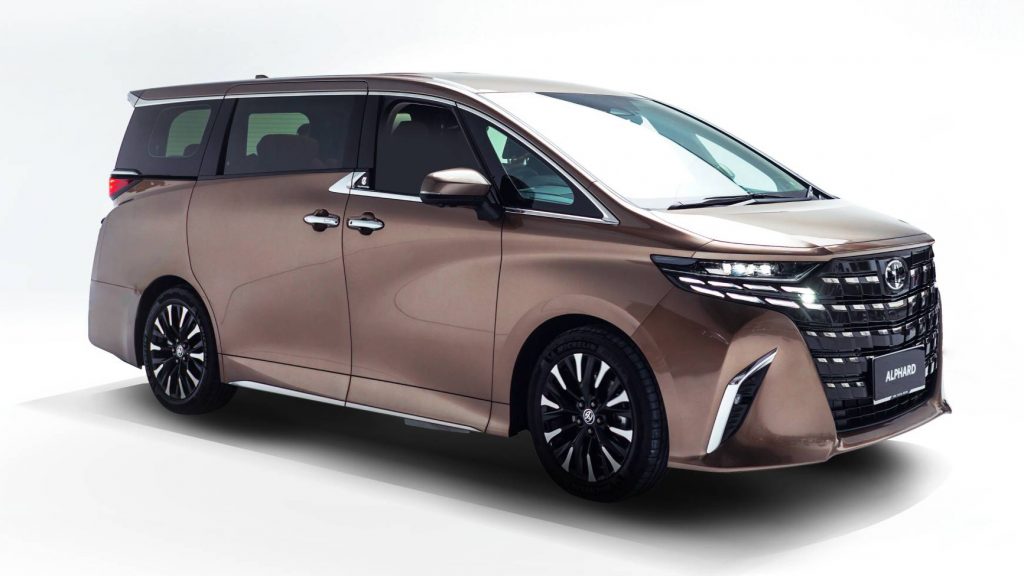
Like other cars in the luxury MPV segment, the EM90 is vast, measuring 5,206mm long, 2,024mm wide and 1,859mm tall, with a wheelbase of 3,205mm. Compared to the new fourth-generation Toyota Alphard, the Volvo is 196mm longer, 174mm wider and 91 mm lower and has a 205mm longer wheelbase, so it’s a big car.
Surprisingly, however, the Alphard is more powerful—its 2.4-litre turbocharged four-cylinder petrol engine puts out 275hp and 430Nm, although its routed to the front wheels through an eight-speed automatic gearbox. Volvo hasn’t quoted a kerb weight for the EM90 but it will likely be a damn sight heavier, even though the Toyota is no featherweight at 2,235kg, so its Japanese rival should be quicker.
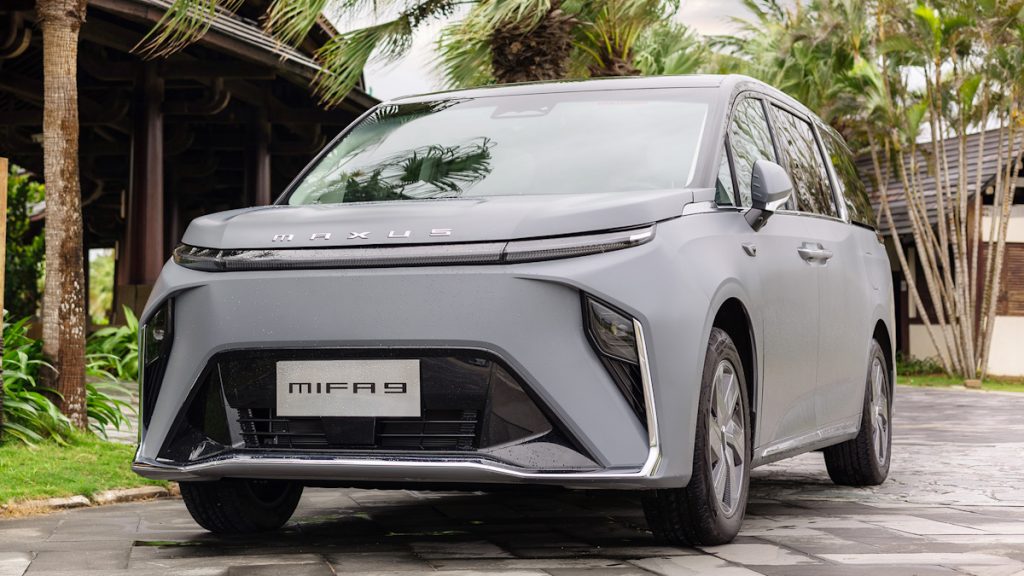
But what about the EM90’s electric rival, the Maxus Mifa 9? The latter is even longer—64mm longer, to be precise—although the Volvo counters by being 24mm wider and 19mm taller. It also has less power (241hp) but more torque (350Nm); even so, it’s nearly a full second slower to 100km/h, taking 9.2 seconds for the century sprint. The EM90 also has a much longer range than the Mifa 9, which can only travel up to 435km on a single charge, although that’s on the more realistic WLTP cycle.
Both the Toyota and the Maxus are able to seat seven, with an additional passenger straddling the two third-row seats, even though—like the Volvo—they both have comfortable-looking captain’s chairs in the second row.
Will the EM90 come to Malaysia? Volvo Car Malaysia hasn’t confirmed it just yet, but the car is said to be designed with the Asian market in mind, and Malaysia is a big market for the Alphard and its Vellfire sibling in particular. If it does make it to our shores, expect it to be priced closer to the Alphard (RM438,000) than the Mifa 9 (starts at RM269,888), given the strength of the premium Volvo brand and the expected high level of standard equipment.

